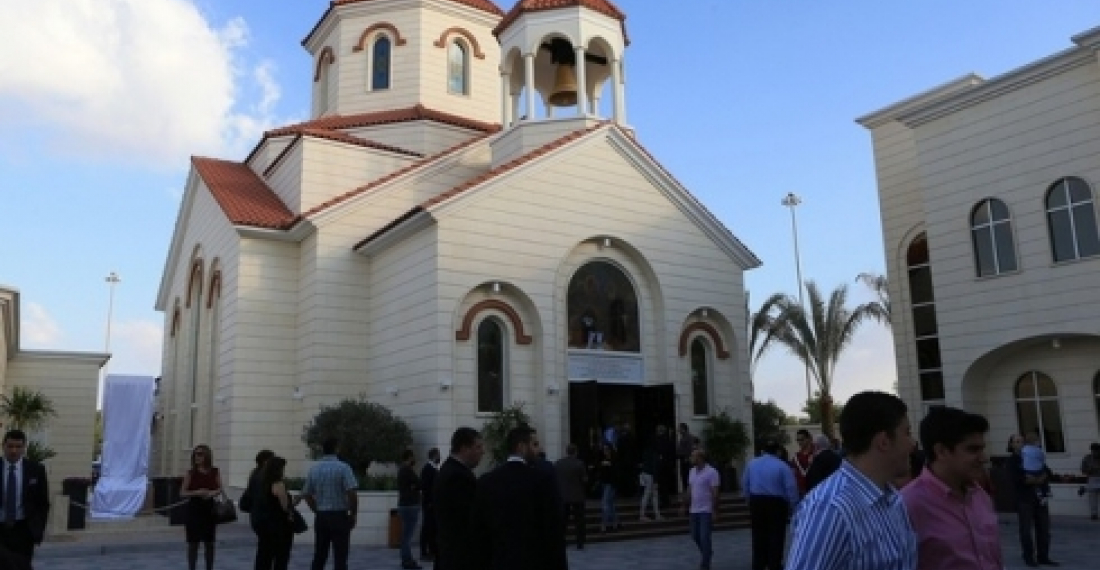As Armenians all over the world prepare to celebrate Christmas, in Abu Dhabi the community is also celebrating the opening of a new church.
The long-awaited Armenian Church in Abu Dhabi opened its doors three weeks ago. It is not the first Armenian Church in the United Arab Emirates (UAE). A thriving Church and Armenian cultural centre has existed in the emirate of Sharjah for many years. Sharjah was the first emirate to have an Armenian community - dating back to 1968. But this will be the first Armenian church in the capital of the United Arab Emirates.
The UAE newspaper, The National reported on Sunday that about 1,000 Armenians living in Abu Dhabi are thrilled to have their own church, and it is one that has been designed according to their traditions and architectural style.
The 2,475-square-metre building has three main structures placed in a U-shape. The main church building stands on the right and next to it in the centre stands the archbishopric. On the left is a building partially constructed of glass and decorated with the Armenian alphabet. A statue of Mesrob Mashdots, the theologist and linguist who founded the Armenian alphabet, lies ahead. The newspaper said that when the first Armenians arrived in the capital in 1976, they established the Armenian Sunday school to teach youngsters their language and to keep the community together.
Raffi Simonian, secretary of the council of the Armenian community of Abu Dhabi told the National that in 1980, the Armenian See in Lebanon established a council, "and since then until 2005, we were trying to have a piece of land from the government [to build a church] but we had a problem; the members were not fixed and they kept coming and going, so the Sunday school was OK for the time being". For church activities they used to borrow the Greek Orthodox Church every other week, and the Greek Orthodox borrowed the Armenian church in Sharjah every other week. The priest held mass one week in Sharjah and the other in Abu Dhabi.In 2005, Sheikh Mohammed bin Zayed, the Crown Prince of Abu Dhabi issued a special decree from the diwan and donated land to build the Armenian church. "Then we started gathering donations from the Armenian community in the UAE and Kuwait. Construction began in 2012."
So far, a mass is held every Friday, and celebrations for holy and national holidays will take place at the church. In the near future, a priest is expected to be based there so the church will be open on a daily basis.
Anita Shahmirzayan said she cannot wait for that to happen. "If I'm feeling down or have a certain issue I can just go and pray, I don't have to wait for mass," said the 36-year old bank manager.
The complex on the left, which contains a ballroom, will be the base for the Sunday school. "Now we have our own church and it has a ballroom, so if there is a celebration or a funeral or any occasion we can do it here - no need to rent places," Ms Shahmirzayan said. Once Arpy Eskenian steps inside the gate of the church she says she feels she is back to her original home. "When I enter I feel I am outside of Abu Dhabi and that I am existing within my own hub," she said. "Because it follows our church style, like the altar and architecture.\" Mrs Eskenian, 49, plans to attend mass weekly with her husband and 20-year-old son.
source: commonspace.eu with the National.
photo: The Holy Martyrs' Church, recently opened in the UAE capital, Abu Dhabi. (photo courtesy of the National).







